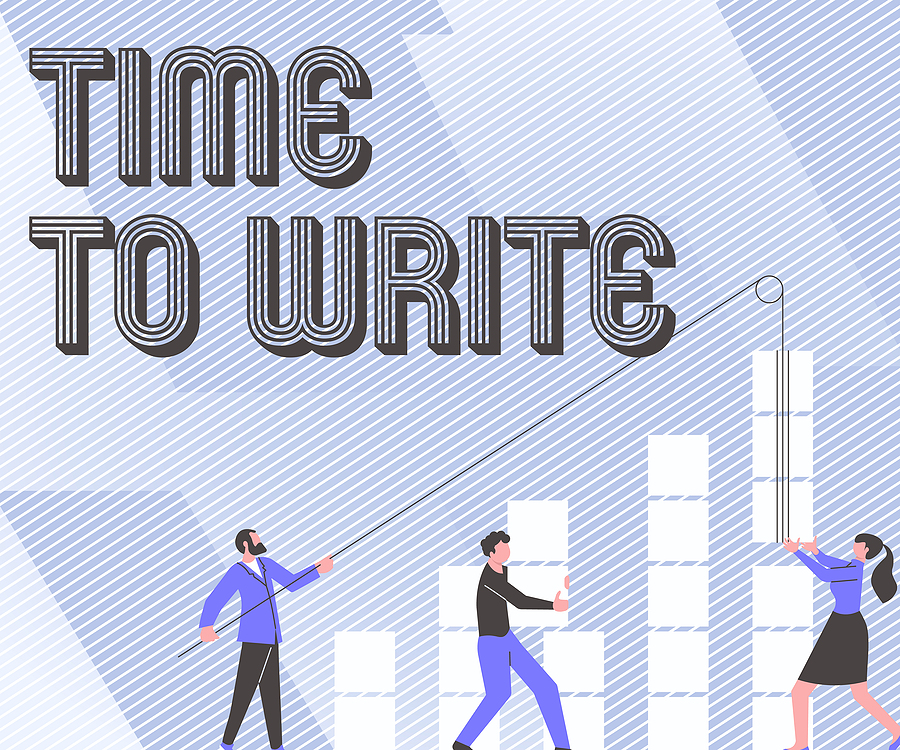
Last month I wrote about “Writing Your Book in 2022.” If you’ve started on the writing process, or even the research/conceptualization process, congratulations! But it is also possible, as I wrote about in that post, that you could easily get bogged down in doubts, fears, and related problems as you write or conceptualize.
Two recent posts can help, no matter what stage of the process you are currently in: Wally Bock’s “Is This Your First Book?,” on his blog Wally Bock’s Writing Edge, and Alex Lazarow’s “So You’re An Innovation Leader. Should You Write A Book?” on Forbes.com. Each author poses a question in the title, and for good reason. The posts provide reality checks for what can be a rewarding process, but also one that takes resources of all kinds with no guarantees about financial, artistic, or other types of success. Alex raises the point that perhaps, depending on your goals and motives, writing a book may not be the best step to take.
However, if you persevere and continue writing your book, it is bound to be stronger if you take into account the key points of these posts. Each has value beyond potential first time authors. Anyone contemplating writing a book, even if they have published previously, can learn something valuable from what Wally and Alex offer. They are authors themselves, and Alex has an interesting vantage point as someone who recently published his first book, Out-Innovate: How Global Entrepreneurs – from Delhi to Detroit – Are Rewriting the Rules of Silicon Valley, with Harvard Business Review Press. He contemplated the decisions he faced when deciding whether or not to write the book, and ultimately how, and by whom, it would be published. At the same time, Alex’s post is not meant to be exhaustive, or to cover every single option that authors have, or every single activity in the process.
Wally and I regularly share each other’s material on social media, particularly Twitter. He works directly with authors on all stages of their books, and draws on his varied work and creative experience, especially in the blog where “Is This Your First Book?” was published. In my role as managing editor, I worked with Alex on his 2021 Leader to Leader article “Looking For Leaders in the Present Crisis and Beyond.” He is a venture capitalist with Cathay Innovation, and teaches entrepreneurship at the Middlebury Institute for International Studies at Monterey. I also included him in my recent ’69 Educators List.’
Alex’s post is ostensibly pitched at innovation leaders and/or entrepreneurs, but it deserves to be read more widely. He methodically and succinctly takes you through many aspects of the writing and publication process, and especially lays out pitfalls and unexpected things that can happen before and after you begin writing. He also emphasizes the importance of building a team and working with it effectively, whether or not some of the team members actually work for your publisher (assuming you have one).
Wally gets down to the nitty gritty of determining how and where you will find time to write, and what that may mean for relationships with people close to you. Yet he points out that you can’t let it overwhelm your life, and become more important than anything else. Both authors emphasize the requirement for high quality, which has to be achieved whether or not you possess every part of the puzzle. If you don’t, you have to find help somewhere.
Both posts make the point that you have to think of your book as a separate entity, yet it somehow must be an integral part of your identity as a professional, and as a creative person. Writing your book, not to mention the subsequent marketing, publicity, distribution, publication, and related legal issues, is a complex endeavor: “A book is a giant system,” Wally writes.
For the self-publication/marketing/distribution process, there are also authors who go to extremes. Earlier this month, Elizabeth A. Harris reported in The New York Times: “Fantasy Author Raises $15.4 Million in 24 Hours to Self-Publish Brandon Sanderson set out to raise $1 million on Kickstarter in 30 days to fund four new books. He blew past it in about 35 minutes.”
Of course, most people are unlikely to pursue this route, especially in setting up their own companies. The article also points out that Sanderson was already a veteran author before he started his campaign, and will continue to work with traditional publishers, along with self-publishing. “Sanderson emphasized that he was not leaving traditional publishers,” Harris writes, “in part because he wants to be sure that bookstores can continue to have his work in stock.”
For most authors and prospective authors, the posts by Wally Bock and Alex Lazarow are likely to save you time, resources, and effort. They will help you decide if you are making the right progress on your book, and whether or not to (temporarily or otherwise) redirect your energy into other forms of creativity.
